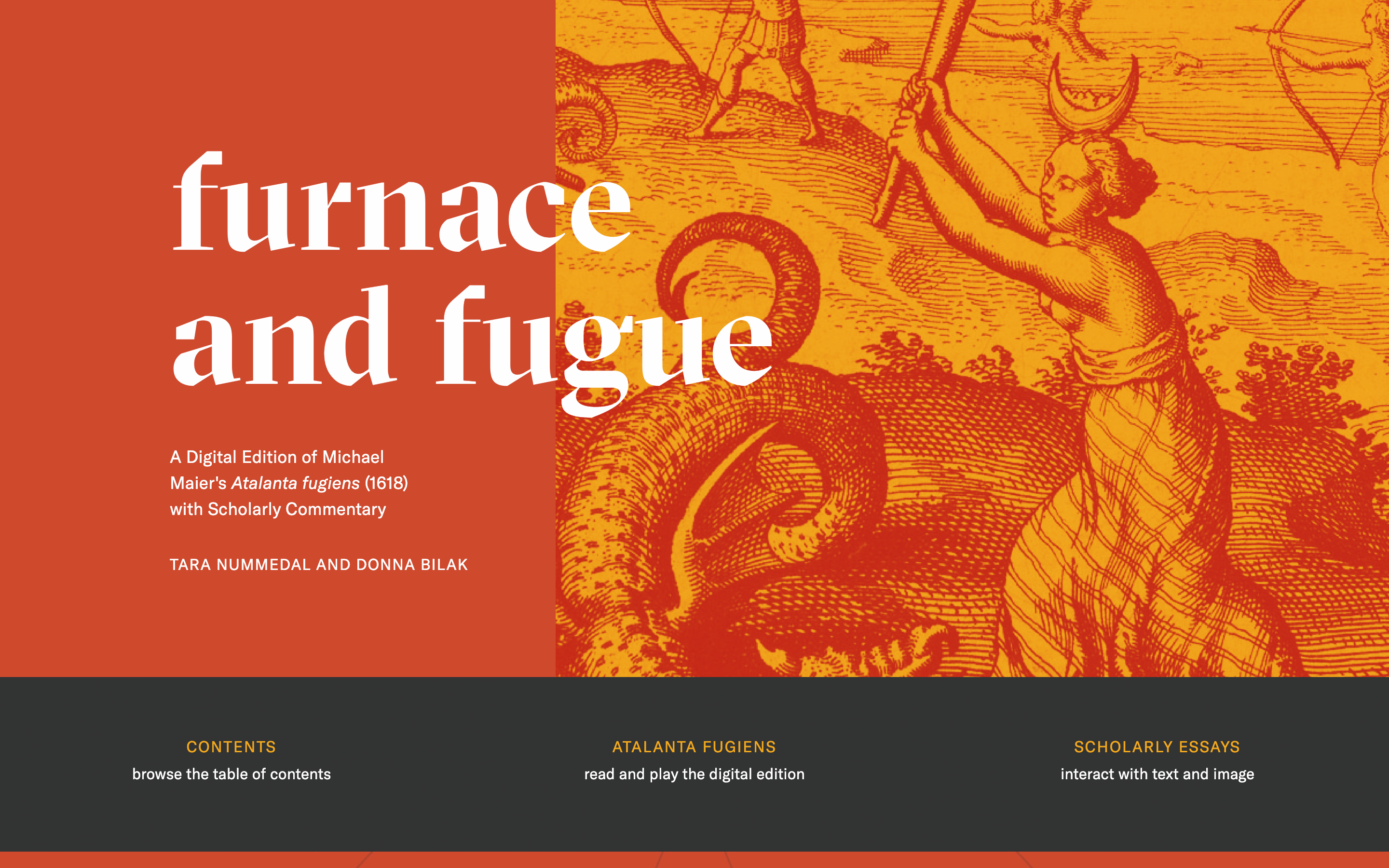
Atalanta fugiens (1618) lends itself unusually well to experimentation with digital tools and technologies available today. Re-rendering Michael Maier’s multimedia alchemical project as an enhanced online publication, Furnace and Fugue allows contemporary readers to hear, see, manipulate, and investigate Atalanta fugiens in ways that were perhaps imagined when it was created yet impossible to fully realize before now. An interactive, layered digital edition provides accessibility and flexibility to readers, presenting all the elements of the original book along with significant enhancements that allow for deep engagement by specialists and nonspecialists alike: a fully searchable English translation sourced from a seventeenth-century manuscript housed in the Beinecke Rare Book and Manuscript Library at Yale University; high resolution, zoomable images; newly commissioned, manipulable vocal recordings of the book’s music; a downloadable performance edition featuring modernized musical notation; and a multifunctional space that allows users to curate, save, and share their own selection and arrangement of Maier’s emblems. Furnace and Fugue makes possible the playful capabilities implied by Atalanta fugiens while also enabling and encouraging new interpretations of this early modern emblem book. Three short introductory essays invite readers to get acquainted with early modern alchemy, contemporary printing methods, and Michael Maier himself. Eight extended interpretive essays explore Atalanta fugiens and its place in the history of music, science, print, and visual culture in early modern Europe. These interdisciplinary essays include interactive features that clarify or advance the authors’ arguments while positioning Furnace and Fugue as an original, uniquely engaging contribution to our understanding of early modern culture.
The digital edition of Atalanta fugiens is compiled from transcriptions of the original book, a copy of which is held in the John Hay Library at Brown University, and a seventeenth-century English translation held at Yale University’s Beinecke Rare Book and Manuscript Library. Both texts are encoded in XML using the TEI (Text Encoding Initiative) schema. Detailed notes documenting the encoding conventions are included in the XML files available on the GitHub text repository. The encoded texts capture more features than were able to be displayed in the digital edition and are available for re-use. The digital edition of Atalanta fugiensis converted from XML source files to HTML with the in-house, custom-coded site generator system Furnace, which is written in Python and uses XSL as its template language. The scholarly essays were built with the static site generator Hugo.
The music notation was created with Sibelius and exported to MEI (Music Encoding Initiative), an XML schema for representing the physical and intellectual characteristics of musical documents, using the Sibelius-to-MEI plugin. Because MEI is a format that is easily manipulated, it was possible to use the Verovio music notation engraving library to generate a web-ready vector notation in SVG and to extract the timing information needed to align audio with the interactive music display.
A list of the musical encodings included in the digital edition can be found at https://furnaceandfugue.org/essays/bianchi/#noble-science (Table 1).
To learn more about the technical process and project view the team’s poster, “Multimedia from the 17th-Century Book to the 21st-Century Web” presented at MEC 2020.